It's Time for a Fair Integration in EU, Believes PM Jyrki Katainen
Adelina Marini, April 19, 2013
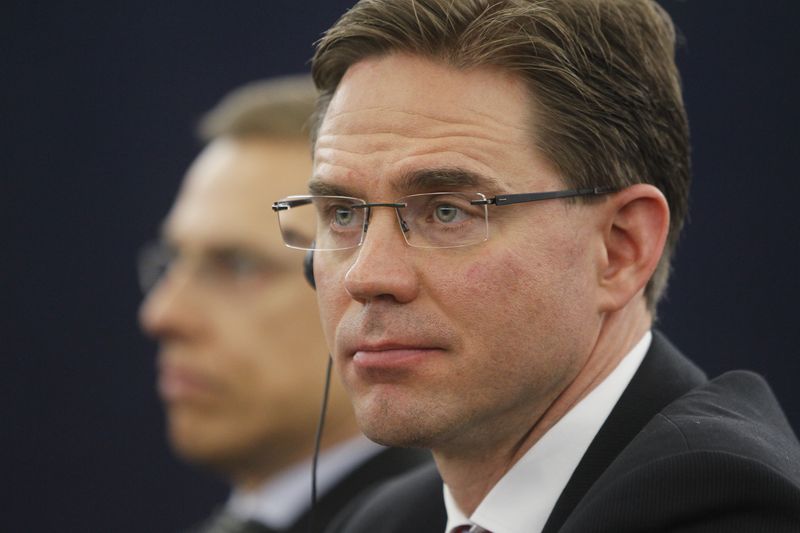 He is young - 41 years old. Married to a football player and in 2008 The Financial Times pronounced him the best minister of finance in Europe. This is the prime minister of Finland, Jyrki Katainen, who was another head of state to appear in Strasbourg to debate with MEPs his visions about the future of Europe. Finland is a very interesting country and in the past years it emerged as the voice of the North in support of sound fiscal policy. Finland stood beside Germany not once in its resistance against squandering, lack of reforms and injecting money in unreformed sectors or countries. Helsinki was also among the strongest voices in support of a tougher and more targeted common European budget for the period 2014-2020.
He is young - 41 years old. Married to a football player and in 2008 The Financial Times pronounced him the best minister of finance in Europe. This is the prime minister of Finland, Jyrki Katainen, who was another head of state to appear in Strasbourg to debate with MEPs his visions about the future of Europe. Finland is a very interesting country and in the past years it emerged as the voice of the North in support of sound fiscal policy. Finland stood beside Germany not once in its resistance against squandering, lack of reforms and injecting money in unreformed sectors or countries. Helsinki was also among the strongest voices in support of a tougher and more targeted common European budget for the period 2014-2020.
Unwillingness for solidarity or just experience?
During his typically Nordic speech in Strasbourg on April 10th - brief, concise and very clear - Mr Katainen outlined even better his view about European integration - it has to be fair. This means that in order for Europe to be strong, it is necessary the member states to have strong economies and for that to happen each country has to be responsible for its own economy. In March, Jyrki Katainen said in another speech dedicated on Europe that solidarity did not mean transfer of responsibility to someone else nor did it mean Europe to turn into a credit institution. Behind these words is concealed the painful memory of the severe recession in Finland and Sweden in the beginning of the 1990s of the past century.
According to an analysis of the European Commission, this was the severest recession in Western Europe, the peak of which was between the autumn of 1992 and the summer of 1993. At the time, Finland and Sweden were described as the northern periphery of Europe. In the Commission document, it is also written that the common view then was that such a deep recession could not occur in advanced rich countries like Finland or Sweden, with a long tradition of full employment policies and strong influence of trade unions. The crisis was deep and long. The best illustration of the scale of the recession is unemployment which from around 3% in Finland in the period 1989-1991 jumped to 18 per cent in the beginning of 1994. In neighbouring Sweden, unemployment rates had similar movements - from around 2% in 1990 to 10% in the period 1992-1997.
Both countries go through a classic cycle of economic boom and then a bust. The first years of the recovery phase (1994-1997) were tough because of the strict fiscal policy the main aim of which was consolidation of public finances. Does this sound more familiar now? In seven years - from 1994 till 2000 - the total financial balance in the public sector moved from a deficit of 6% of GDP to a surplus of 7 per cent of GDP. The Finnish-Swedish crisis is very indicative about another thing which is in the foundation of today's woes in the euro area (still not conceived then). All European states went through reforms and adjustments in the 1992 that marked the beginning of the opening to the world after the fall of the Iron Curtain and made the first steps toward globalisation.
All of them, however, the economists who prepared the document of the EU say, were examples of the European social model - with highly regulated labour markets. This relates to Finland, too, which by the way succeeds to keep the influence of trade unions in spite of the attempts of the then government to reduce their power. And although, according to the analysis, no revolutionary reforms were made, those that have great significance for what Finland is today are public investments in R&D and high education.
And what is Finland today?
It is tempting to say that maybe Finland today would not have been in the macro economic imbalances procedure if it had implemented deeper structural reforms after the 1990s crisis which no one wants to remember of. But Finland is one of the 14 countries in the procedure (Bulgaria as well), but European Commissioner Vice President Olli Rehn said when he presented the in-depth reviews under the procedure on April 10th that Finland would exit the procedure. And the problems Finland has are 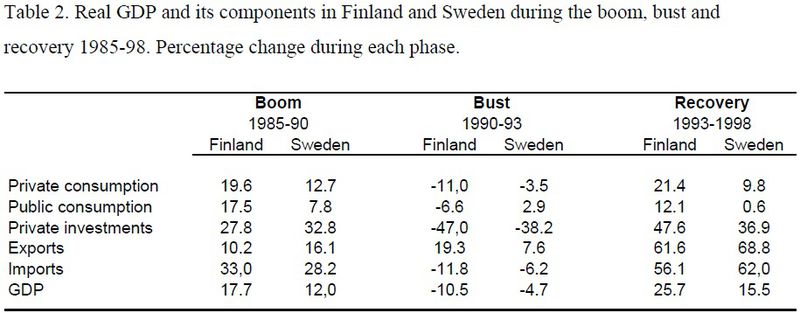 very similar to the rest, but the scale is different. For the past decade, the country experienced a significant loss of competitiveness and the current account moved from a plus to a minus. We are talking about a loss of export market share of 23% only in the past five years.
very similar to the rest, but the scale is different. For the past decade, the country experienced a significant loss of competitiveness and the current account moved from a plus to a minus. We are talking about a loss of export market share of 23% only in the past five years.
One of the reasons is the significant increase in 2008 and 2009 of unit labour costs. The increase of wages continues to outpace growth of productivity. A problem Bulgaria has too, which scores the fastest unit labour costs increase. The lost of export market shares is due also to restructuring of the electronics and forestry industries. The emblematic Finnish electronics company Nokia lost its dominating position and closed all its assembling factories in Finland, the analysis of the Commission says. And the forestry industry transfered its paper and pulp production in Asia and Latin America where demand is growing and there are resources. The other industries could not make up for the filling of the gaps opened by electronics and forestry industries.
Finland continues to be strongly dependent on energy which is reflected in the current account. 20% was the share of energy resources like crude oil of Finland's imports in 2011. Besides, high energy consumption industries continue to dominate in the country. This is one of the reasons why Prime Minister Katainen called in his European speech for speeding up of the work on the establishment of a single energy market.
Three steps to tackle the current crisis in Europe
Jyrki Katainen started with the words that he was part of the Erasmus generation - the European programme for exchange of students that allows students to travel to other countries in the EU and exchange experience with their fellow students. "Thanks to European integration, I had the opportunity to complete part of my studies at the University of Leicester in the UK. As an ERASMUS student, I spent a year there studying European affairs. This experience opened my eyes to the importance of European 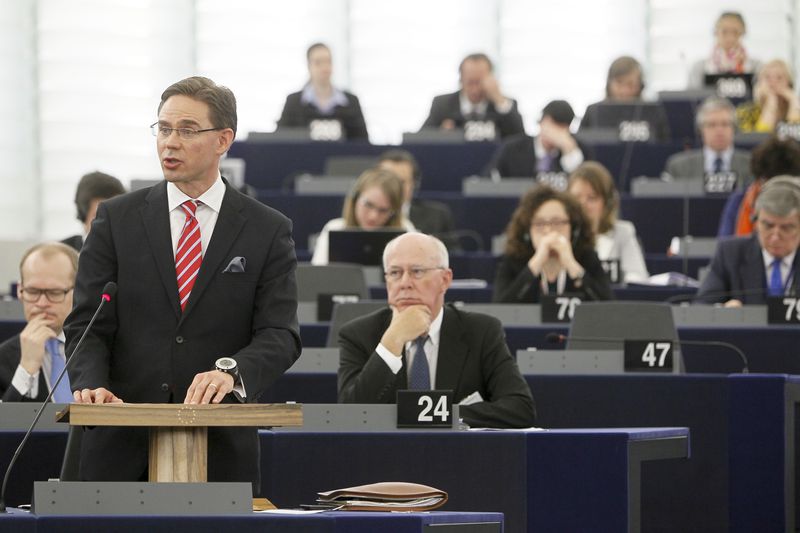 integration", said in the beginning of his speech the Finnish premier as if to prepare the federalistically inclined MEPs that before them stands not a eurosceptic, but on the contrary. As Katainen explains in an interview with the CNN earlier this year, he is not a hardliner, but a fair liner.
integration", said in the beginning of his speech the Finnish premier as if to prepare the federalistically inclined MEPs that before them stands not a eurosceptic, but on the contrary. As Katainen explains in an interview with the CNN earlier this year, he is not a hardliner, but a fair liner.
"Is it now considered ‘hardline’ to value the rule of law? Following rules is the key to democracy, the democracy upon which European integration is built and at whose very core lies the rule of law. By flouting our own rules, we undermine the rule of law and the very foundation of democracy itself", the Finnish premier says in the same interview. And before the MEPs he adds that the current economic and social challenges should not be left to poison the idea of European integration. "We should not let nationalistic and populist voices dominate the European debate".
And to make it even clearer that Finland is not a country which opposes deeper integration, Mr Katainen said: "Let me be clear: we need more Europe AND we need more national responsibility. We cannot have one without the other". The three steps which he proposes by explicitly pointing out that they are not some revolutionary ideas or treaty changes, are: sticking to the common European values and rules. A very important element of this first step is not to overlook corruption and the breaches of the rule of law. If a failure is allowed in the fight against tax evasion or tax havens, our own efforts will be undermined to build a better Europe. In this context, he explained the paradox which very often is pointed in the European Parliament too.
"The paradox of today’s debate is that strong rules and strong European institutions are sometimes seen as a threat to member states. When in fact the opposite is true: Rule of law and common institutions protect member states, and especially the smaller ones". It is not bad Bulgaria to communicate more often with Finland because Sofia definitely has a lot to learn.
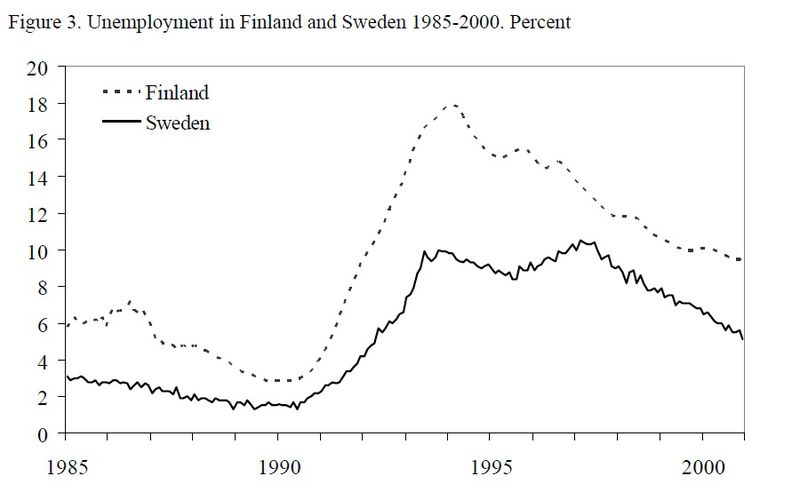 The second step of Jyrki Katainen is to reach the right balance between solidarity and responsibility. He pointed out that Finland was one of the few countries in the Union which had in fact increased its contribution to the common budget for the period 2014-2020, moreover significantly. "But solidarity must go hand in hand with the Member State’s own responsibility. We all have to do our homework. We all have to take difficult political decisions when they are due", he said. And the third step is deeper integration which will make Europe stronger, but under the condition that this deeper integration is also fair. "I know how they feel [the member states]. I remember Finland's own financial crisis all too well. In the early 1990s, twenty per cent of Finns were jobless. Finland was at the brink of insolvency. Over ten per cent of our GDP was shaved off in just a few years.Finland managed to get through the crisis, but in many ways, we are still paying the social price for it", the prime minister said.
The second step of Jyrki Katainen is to reach the right balance between solidarity and responsibility. He pointed out that Finland was one of the few countries in the Union which had in fact increased its contribution to the common budget for the period 2014-2020, moreover significantly. "But solidarity must go hand in hand with the Member State’s own responsibility. We all have to do our homework. We all have to take difficult political decisions when they are due", he said. And the third step is deeper integration which will make Europe stronger, but under the condition that this deeper integration is also fair. "I know how they feel [the member states]. I remember Finland's own financial crisis all too well. In the early 1990s, twenty per cent of Finns were jobless. Finland was at the brink of insolvency. Over ten per cent of our GDP was shaved off in just a few years.Finland managed to get through the crisis, but in many ways, we are still paying the social price for it", the prime minister said.
Hannes Swoboda (Austria), leader of the group of Socialists and Democrats in the Europarliament, however, did not agree with the premier of Finland and advised him not to quote the Finnish crisis as an example because it had nothing to do with the euro. The eurozone is something different, he said, and called also the Latvian crisis not to be given as an example no matter that Latvia went through the severest crisis in its history of an independent state, but for a minimum number of years it managed not only to recover, but also to become the only country that wants in these troubled times to join the single currency.
The MEPs in general remained deaf for Finland's messages, some of which were uttered even in French. Joseph Daul, who is otherwise a leader of the biggest political group - EPP (right-wing) - called for debt sharing, but Jyrki Katainen reminded him that something very similar to eurobonds was already tested with the introduction of the single currency when all member states got money at an equal price. He also asked who would agree to lend more money to over-indebted countries. The former prime minister of Belgium and now a leader of the Liberal group, Guy Verhofstadt, was sticking to his often repeated theses about the need of a common European government and a European treasury. 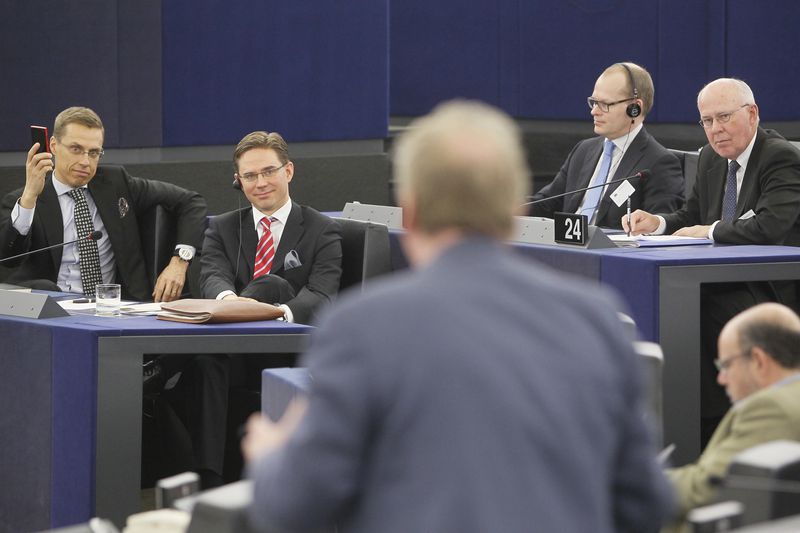 Moreover, he said, we have turned into a European UN, while we have to be going toward a United States of Europe.
Moreover, he said, we have turned into a European UN, while we have to be going toward a United States of Europe.
And the co-chair of the group of Greens and European Free Alliance, Daniel Cohn-Bendit, criticised Finland for insisting on cuts in the common budget. Right when Portugal and Greece needed it the most, they end up with less money, he said, as if he did not attend Katainen's speech in which the prime minister said that it was necessary mutual confidence to be built. "Structural reforms will not bear fruit overnight, but reforms are the most effective and most sustainable economic stimulus in the long run. If we all play by the new rules, our economies will get stronger. This is not just economic theory, it is plain common sense".
The MEPs as if missed out another key message from Katainen's statement: "My government will support deeper integration as long as it is fair to all member states". It will be exceptionally tragic for the European integration if for the sake of populism and denial of responsibility it looses a country like Finland which has managed to go through the catharsis of its financial crisis and outlive it without relying on someone else to rescue it or inject it with money. And if there were more Finlands in the EU, then this would have been the strongest regional power in a world of regional powers. Currently a process of regionalisation is going on in the world. A Pacific Alliance is being established in support of free trade and sound finances; because of the Syrian conflict the Arab League is getting stronger; the African Union is also moving forward and already there is a talk about a Eurasian Union, Jyrki Katainen explained.
 Klaus Regling | © Council of the EU
Klaus Regling | © Council of the EU Mario Centeno | © Council of the EU
Mario Centeno | © Council of the EU Mario Centeno | © Council of the EU
Mario Centeno | © Council of the EU